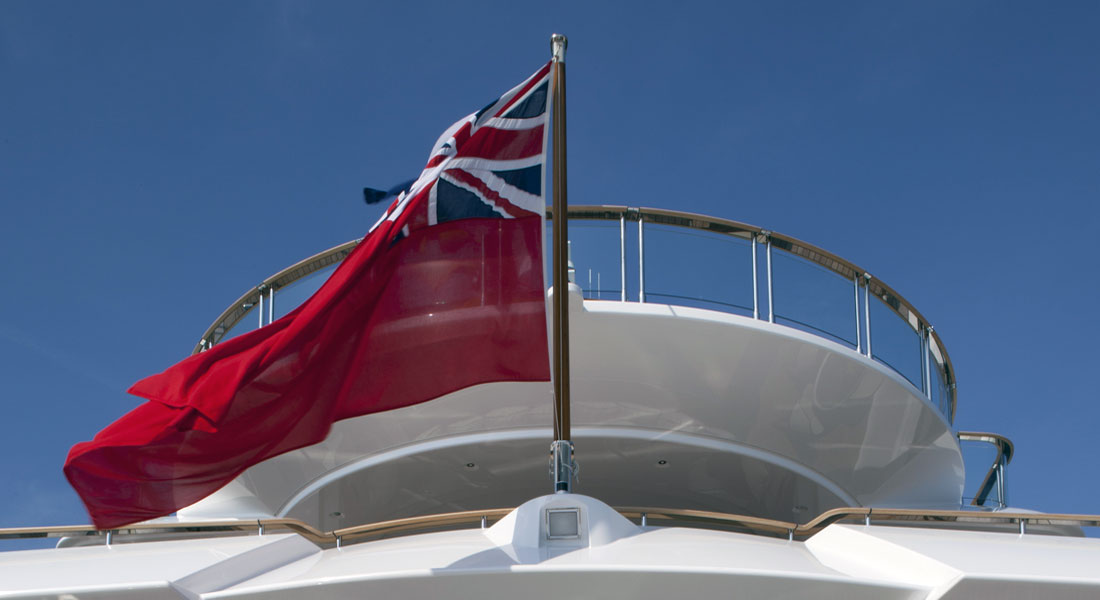EDITOR’S NOTE: The Florida Yacht Brokers Association (FYBA) is one of the world’s largest organizations representing those helping yacht owners buy and sell their boats. Among other things, FYBA lobbies on behalf of the yachting industry on hot-button issues. One of the latest is the longstanding U.S. law that, in essence, prevents foreign-flagged yachts to be sold to Americans while in U.S. waters. FYBA, along with other industry bodies, would like the restrictions removed.
Some Americans and non-Americans alike do not understand the law. Even those who do may not realize lobbying efforts are in the works to change the law. For those reasons, MegayachtNews.com approached Jeff Erdmann, a FYBA board member, for permission to reprint an article he uploaded to LinkedIn. The full text is below.
Why Is She NOT FOR SALE TO US RESIDENTS WHILE IN US WATERS?
The Florida Yacht Brokers Association’s (FYBA) 1,100 members requests legislative support to remove current restrictions in the cruising license that forbids offering used foreign-flagged boats for sale to U.S. residents while in U.S. waters. Florida’s marine industry is a $17.2-billion market sector, supporting 202,000 jobs. A Cruising license normally valid for one year is obtained from U.S. Customs and Border Protection (CBP) at the first port of arrival in the U.S. and exempts pleasure boats of certain countries from having to undergo formal entry and clearance procedures.
Currently, boats under a cruising license, while in U.S. waters, are forbidden to offer their boats for sale to U.S. residents until the boat is imported and duty is paid on the appraised value.
Pre-sale duty is assessed on an appraised value rather than on the actual selling price. (This is like listing your house for sale and paying the transactional doc stamp taxes for an appraised value the day you offer it for sale instead of when it is sold.)
Only U.S. residents are prohibited from viewing these boats while in U.S. waters. (This is like having your house for sale only to foreign buyers while prohibiting American buyers the ability to view or purchase the house.)
When a boat is sold to a non-U.S. resident or doesn’t sell while in U.S. waters, duty is not due. (Currently owners have to import and pay duty on a boat in order to offer it for sale, then export it to apply for duty drawback to receive a refund of the customs duty paid.)
The current cruising license policy is discouraging about $2.46 billion in U.S. economic activity that could be generating thousands of well-paying American jobs.
Typically there are 300-400 used boats on the market (valued in excess of $2 billion) that cannot be offered for sale to U.S. residents while in U.S. waters.
Each of these boats spends an average 10% of its value annually on labor, goods, services, and maintenance, contributing about $200 million yearly to the local economy.
New buyers typically spend an additional 13% of the selling price on upgrades and improvements in the first year post-sale, generating about $260 million locally.
FYBA believes a less-restrictive cruising license, which allows used foreign-flagged boats to be offered for sale to U.S. residents while in U.S. waters, would benefit American marine-industry workers and generate additional state and federal tax revenue.
Removing the restriction to offer for sale will encourage more used foreign-flagged vessels to visit the U.S., offering their vessels for sale, creating well-paying American jobs.
FYBA recommends importation and payment of duty for used foreign-flagged boats the day a boat is sold, rather than the day it is offered for sale.
FYBA recommends the following federal legislative action: Pass legislation which allows used foreign-flagged boats with a valid cruising license to be offered for sale to anyone, including U.S. residents while in U.S. waters, as specified in 19 CFR 4.94.









Jeff Erdmann
If you agree, Please send an email to shay@fyba.org with your companies logo confirming your support, so we can be in touch as we move the issue through the process, Thanks Jeff Erdmann.
bill nielander
Good evening: Any ideas on a lobbyist firm in DC that could represent a country that wants to get approval to be on the list in 19 CFR 4.94(b) ? Thank you.
Diane M. Byrne
We cannot make a recommendation, but best wishes in your research.